The LEGO: Laboratory for Emotions in Groups and Organizations

Our work within the LEGO is dedicated to researching emotions and group dynamics, and their links, at individual, group, leader, and organizational levels in sport and similar high-pressure performance settings like music and emergency responds. We are passionate about conducting ecologically valid research that has the capacity to make a real impact in the field and translating our findings and knowledge back to performers, teams, and organizations, collaborating with them as partners to generate and investigate new and relevant research questions.
For our knowledge translation efforts for coaches and other performance leaders, have a look at www.legocoach.create.fsu.edu.
Learn more about the LEGO’s current research and knowledge translation efforts!
Project lead: Dr. Svenja A. Wolf
Research questions: Does greater emotional agreement predict increased social integration (i.e., cohesion, entitativity, identification, commitment)? Does emotional valence (i.e., pleasant as in happiness and excitement vs. unpleasant as in anxiety, dejection, and anger) moderate this relationship?
Method: Cross-lagged multilevel correlational field study of competitive adult sport teams responding to questionnaires on emotions and perceived social integration.
Status: In data-collection
Project lead: Dr. Svenja A. Wolf
Project funding: Florida State University, College of Education, Dean’s Circle Catalyst grant
Research questions: To what extent does outcome interdependence (i.e., coactive/independent vs. conjunctive/worst team member counts task structure) change the effects of situational pressure on cognitions (i.e., perceived indispensability, primary and secondary appraisal), emotions (i.e., excitement and anxiety), effort, and performance? Does task type (i.e., effort-based/conditioning vs. skill-based/coordination) moderate these changes?
Method: Field experiment of competitive adult basketball players performing sprint and free throw tasks and responding to questionnaires on cognitions, emotions, and effort under conditions of low vs. high pressure and independence vs. interdependence
Status: In data-collection
Project lead: Dr. Svenja A. Wolf
Project partners: Technical University Munich, German Alpine Association
Project funding: VAUDE Albrecht von Dewitz foundation; Florida State University, Council on Research and Creativity, Committee on Faculty Research Support grant
Research questions: What are the phenomenology, consequences, and antecedents of group decision-making in mountaineering at various levels of expertise? And which variables at individual, dyad, group, leader, organizational, and cultural levels influence these processes?
Method: Literature review, expert interviews, case studies of elite mountaineering squads during one of their training expeditions, cross-sectional questionnaire survey of diverse mountaineering groups across one season in the German Alps
Status: In data-analysis of the literature review and expert interviews, In preparation of the case studies and cross-sectional questionnaire survey
Project lead: Rebecca R. Foti
Research questions: This study aims to (a) explore how the regulator perceives their emotions, cognitions, and task effort to be impacted by providing IER, (b) explore how the target teammate perceives the receipt of IER to impact their emotions, and (c) to understand the relationship and team dynamic involved in IER and the factors that contribute to IER implementation.
Method: Multi-level interviews (at the dyadic and individual level) with the use of video recall
Status: In document preparation
Project lead: Jordan C. Smith
Research Aims: The research aims to examine how displays of pride can predict specific emotional responses, which, in turn, shapes the likelihood of engaging in behaviors that either enhance or hinder performance. Specifically, I intend to assess the extent to which displays of pride can predict (a) benign envy, (b) malicious envy, and (c) admiration, and examine how these emotions motivate corresponding behaviors, including personal effort, compassion towards teammates, antisocial behaviors, and the desire for affiliation.
Method: A repeated measures case study research design in which participants repeatedly completed two online questionnaires across their spring 2023 competition season (minimum of 4 time periods).
Status: Defended (in stage of writing for publication)
Project lead: Jared Hrabcak
Research Question: How do group dynamics present and influence transient teams?
Method: Grounded Theory methodology, semi-structured interviews
Status: In Preparation
Research questions: How does an athlete’s injury impact their teammates emotions and the team’s dynamics? Underlying question: what is the relationship between emotions and team dynamics in response to an injury?
Method: Media Analysis, Scoping Review
Status: In write-up
Project lead: Ashlyn Fesperman
Research questions: How does the emotional expression of an athlete post performance impact their teammate’s pre performance emotions and subsequent performance?
Method: Self-confrontational video review
Status: In data analysis
Project lead: Dr. Svenja A. Wolf
Project funding: Florida State University, University Libraries, Project Enhancement Network and Incubator
Project aims: Providing credible yet accessible information and tools on all things group and emotion to performance leaders (e.g., coaches). Translate our and other emotions and group dynamics research to a target of performance leaders. Stimulate exchange and action research partnerships.
Method: Website with short and long text blocks and downloadable Fact Sheets, Assessments, Regulation Playbooks.
Status: In development
Wolf, S. A., Heerdink, M. W., & van Kleef, G. A. (2023). A motivational account of convergence in emotion expressions within groups: The Emotional Conformity Framework. Emotion Review. Advance online publication. https://doi.org/10.1177/17540739231182241
Kim, J., Tamminen, K. A., Bissett, J. E., Danyluck, C., Wolf, S. A., McEwen, C., & Wagstaff, C. R. D. (2023). “I hate it when that happens too!”: Observed and perceived exchanges of social support between university student-athletes during discussions of stressors. International Journal of Sport & Exercise Psychology. Advance online publication. https://doi.org/10.1080/1612197X.2022.2161106
Tamminen, K., Wolf, S. A., Dunn, R., & Bissett, J. E. (2022). A review of the interpersonal experience, expression, and regulation of emotions in sport. International Review of Sport and Exercise Psychology, Ahead-Of-Print (Ahead-Of-Print), 1–38. Https://Doi.Org/10.1080/1750984X.2022.2132526
Beckmann, J., Waldenmayer-Beckmann, D., & Wolf, S. A. (2023). Self-regulation in competitive sports (pp. 491-512). In J. Schüler, M. Wegner, H. Plessner, & R. C. Eklund (Eds.), Sport and Exercise Psychology: Theory and Application. Springer.
Wolf, S. A. (2023, February). Getting your research knowledge out to its target audience: The case of the LEGO Coach, a sport psychology platform for performance leaders. Blog post retrieved from https://incubator.create.fsu.edu/process-blog/getting-your-research-knowledge-out-to-its-target-audience-the-case-of-the-lego-coach-a-sport-psychology-platform-for-performance-leaders/
Wolf, S. A., (2023, April). The physical education teacher and the emotional regulation in sports. PODIUM Sportcast (3rd Season). Podcast retrieved from https://www.youtube.com/watch?v=6UjN02WiyYs
See (where) the LEGO (has been) in action!
Upcoming Presentations
Past Presentations
Wolf, S. A., Viëtor, V., Smidi, J., Sevim, S., Bentvelsen, J., & Been, M. (presented 2023, June). United in joy and misery? A scenario-based exploration of the effects of emotional valence and sharedness on perceived team integration and teamwork. Presentation at Annual meeting, North American Society for the Psychology of Sport & Physical Activity, Toronto, ON, Canada. (International)
Wolf, S. A., Eccles, D., & Wergin, V. V. (presented 2023, March). United in joy and misery? Investigating the links from collective emotions to team integration. Presentation at Annual Marvalene Hughes Research in Education Conference, College of Education, Florida State University, Tallahassee, FL, USA. (Local)
Wolf, S. A., Viëtor, V., Smidi, J., Sevim, S., Bentvelsen, J., & Been, M. (2023, June). United in joy and misery? A scenario-based exploration of the effects of emotional valence and sharedness on perceived team integration and teamwork. Paper presented at the annual meeting of the North American Society for the Psychology of Sport & Physical Activity, Toronto, ON, Canada. https://osf.io/fpeb9
Wolf, S. A., Eccles, D., & Wergin, V. V. (2023, May). Vereint in Freud und Leid? Die Zusammenhänge zwischen kollektiven Emotionen unterschiedlicher Valenz und Indikatoren der Mannschaftsgeschlossenheit [United in joy and misery? The relationships between collective emotions of different valence and indices of social team integration]. In S. Leisterer & S. A. Wolf (Chairs), Emotionen und Emotionsregulation im sozialen Kontext Sport [Emotions and emotion regulation in the social context of sport]. Symposium conducted at the annual meeting of the German Association of Sport Psychology, Stuttgart, Germany. https://osf.io/fpeb9
Wolf, S. A., Lautenbach, F., & Röthlin, P. (2023, May). Zusammen sind wir stärker – aber wie arbeiten wir zusammen? Fallstudien und Ansätze zur Integration von Forschung und Praxis in der Sportpsychologie [We are stronger together – But how do we work together? Case studies and approaches to integrate research and practice in sport psychology]. Knowledge translation symposium conducted at the annual meeting of the German Association of Sport Psychology, Stuttgart, Germany.
Wolf, S. A., Viëtor, V., Smidi, J., Sevim, S., Bentvelsen, J., & Been, M. (2023, March). United in joy and misery? A scenario-based exploration of the effects of emotional valence and sharedness on perceived team integration and teamwork. Paper presented at the annual Marvalene Hughes Research in Education Conference, Tallahassee, FL, USA.
Block, C. J., & Wolf, S. A. (presented 2023, June). The light and dark side of positional indispensability: Understanding the relationship among goalkeepers, indispensability, and psychological outcomes. Presentation at Annual meeting, North American Society for the Psychology of Sport & Physical Activity, Toronto, ON, Canada. (International)
Gierens, F., Wachsmuth, S., Wolf, S. A., Dieterich, M., Herrmann, Hans-Dieter, & Höner, O. (presented 2023, May). You've got a friend in me (?): Soziale Unterstützung innerhalb der Leistungszentren des deutschen Fußballs [You've got a friend in me (?): Social support within German soccer training academies]. Presentation at Annual meeting, German Association of Sport Psychology, Stuttgart, Germany. (International)
Heerdink, M. W., Wolf, S. A., Lange, J., & van Kleef, G. A. (presented 2023, July). Emotional cues to group hierarchy. Presentation at 20th general meeting, European Association of Social Psychology, Krakow, Poland. (International)
Foti, R. R., & Wolf, S. A. (presented 2023, June). "What about me": Understanding the experience of providing interpersonal emotion regulation on the regulator in competitive sport dyads. Poster presentation at Annual meeting, North American Society for the Psychology of Sport & Physical Activity, Toronto, ON, Canada. (International)
Kafka, J., Eccles, D., Wolf, S., & Eklund, R. (2024, Feb. 23). Sport participation and variation in moral foundations [Conference lecture]. Association of Applied Sport Psychology 2024 Southeast Regional Conference, Tallahassee, FL, United States.
Pauly, H., Wolf, S. A., Dreiskämper, D., & Strauss, B. (presented 2023, May). Clarifying the definitions, components, and operationalizations of effort in psychology and sport science. A scoping review. Presentation at Annual meeting, German Association of Sport Psychology, Stuttgart, Germany. (International)
Saizew, K., Wolf, S. A., Erickson, K., & Martin, L. J. (presented 2023, June). Mapping interpersonal emotion regulation onto positive youth development programs in sport. Presentation at Annual meeting, North American Society for the Psychology of Sport & Physical Activity, Toronto, ON, Canada. (International)
Smith, J. C., Wolf, S. A., Lange, J., Maner, J., Eklund, R., & Turner, J. (presented 2023, June). Rival or role model? How perceived teammates' displays of pride predict emotional responses and behavioral consequences related to performance. Poster presentation at Annual meeting, North American Society for the Psychology of Sport & Physical Activity, Toronto, ON, Canada. (International)
Tamminen, K., Wolf, S. A., Dunn, R., & Bissett, J. E. (2022). A review of the interpersonal experience, expression, and regulation of emotions in sport. International Review of Sport and Exercise Psychology, 1–38. Https://Doi.Org/10.1080/1750984X.2022.2132526
Wergin, V. V., Pasco, S., Mallett, C., & Wolf, S. A. (presented 2023, May). "Like emotional zombies" – Individuelle und interpersonelle Emotionsregulation in Teameinbruchsituationen ["Like emotional zombies" – Individual and interpersonal emotion regulation in team collapse situations]. Presentation at Annual meeting, German Association of Sport Psychology, Stuttgart, Germany. (International)
Wergin, V. V., Schwender, J., Emmenlauer, M., Mallett, C., & Wolf, S. A. (presented 2023, June). "Just pretend to be okay!" – Interpersonal emotion regulation in collective team collapse situations. Presentation at Annual meeting, North American Society for the Psychology of Sport & Physical Activity, Toronto, ON, Canada. (International)
Learn more about the current and past LEGO people!
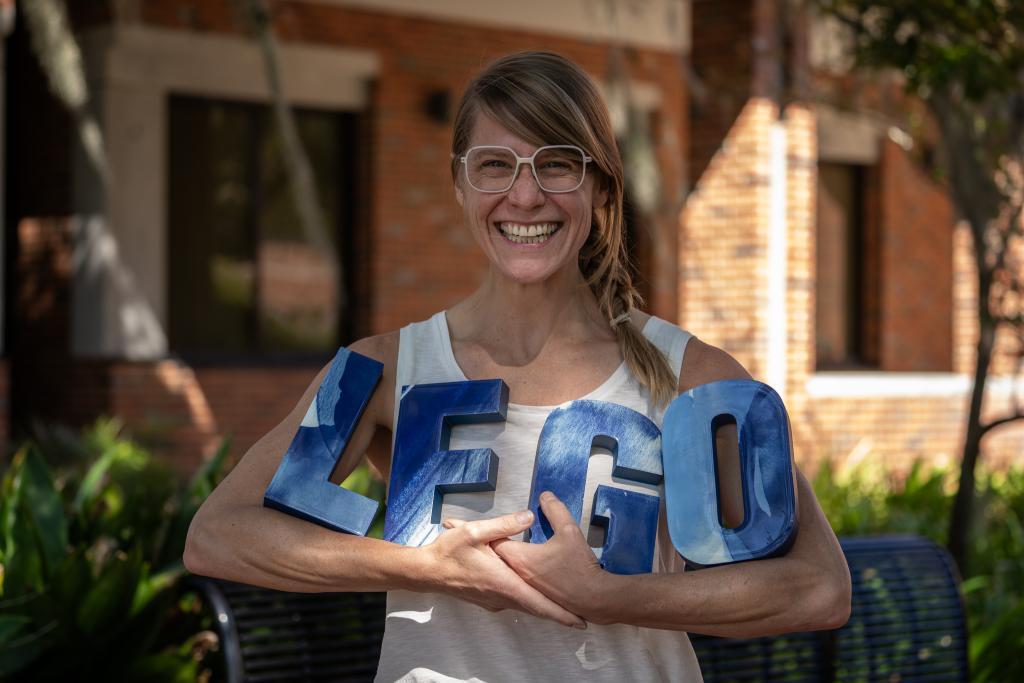
Assistant Professor of Sport Psychology, LEGO Leader
swolf2@fsu.edu
Where are you from?
Most recently, Munich, Germany
When you were a child, what was your dream job?
Astronaut (until I discovered that required perfect eyesight)
What is your favorite quote?
“Life begins at the end of your comfort zone.” - Neal Donald Walsch
Which of the four LEGO letters is your favorite, and why?
Tough to play favorites, but today I will pick the G because (the right) groups do make life better and more enjoyable.
What is your favorite way to spend free time?
Hiking in the mountains, ideally with at least one friend.
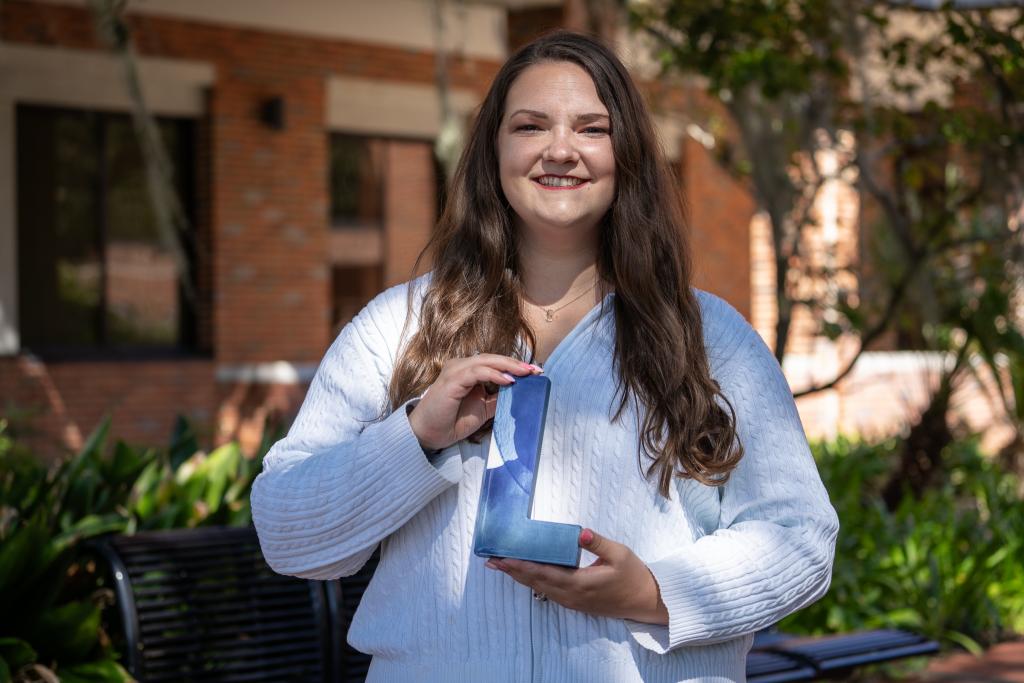
Sport Psychology Doctoral Student, Graduate Assistant
rrf21@fsu.edu
Where are you from?
Bedford, New Hampshire
When you were a child, what was your dream job?
Teacher (and ironically I have stayed true to that path as a current online instructor for undergraduate students).
What is your favorite quote?
If you want something you have never had, you have to do something you’ve never done.” - Thomas Jefferson
Which of the four LEGO letters is your favorite, and why?
G, as although I also love emotions, I find it most interesting to consider how emotions from different individuals impact one another and find groups to be essential for success, whether in sports or personal experiences.
What is the best piece of advice you have ever received?
In order to move forward, you must challenge yourself to be uncomfortable, appreciate past experiences and let them go to progress into better opportunities and growth.
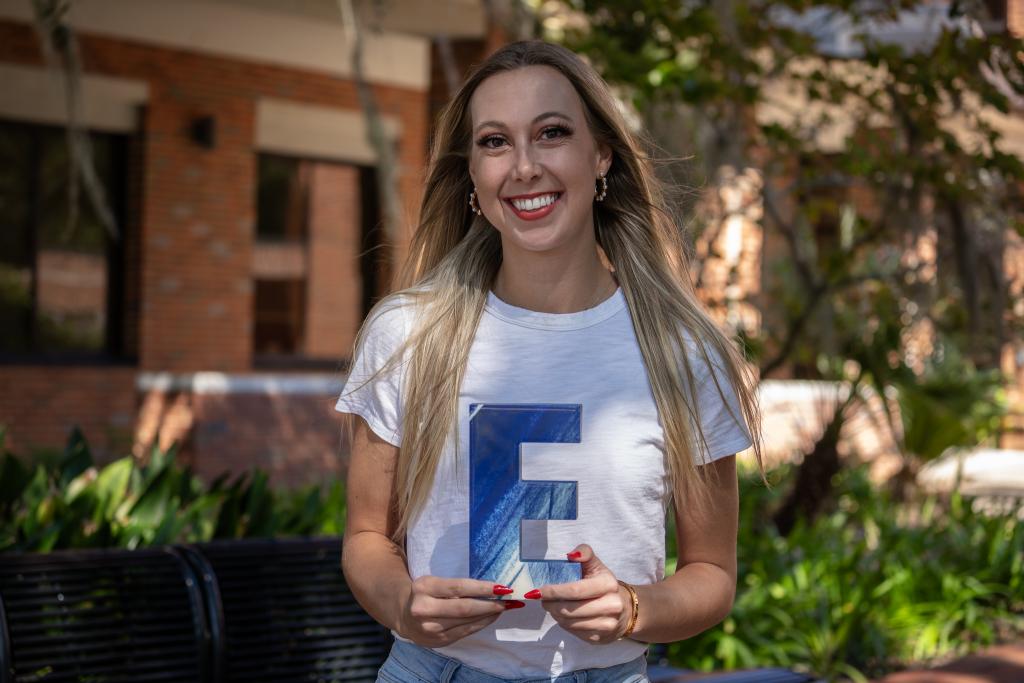
Sport Psychology Doctoral Student, Graduate Assistant at the COE Technology Sandbox
jcs21@fsu.edu
Where are you from?
Graduated high school - Solon, Iowa; Where I actually say - New York, NY
When you were a child, what was your dream job?
To become a professional volleyball player who was able to medal in the Olympics.
What is your favorite quote?"
If opportunity doesn't knock, build a door." - Milton Berle
Which of the four LEGO letters is your favorite, and why?
My favorite letter from the four LEGO letters is E for Emotions. I believe emotions play a significant role in our decision making, whether it is positive by driving the passion behind competing or negative by causing anxiety and self-doubt. Emotions can be seen as a catalyst for rational and irrational action.
What is the best piece of advice you have ever received?
The worst thing people can say is no, but at least you swung the bat.
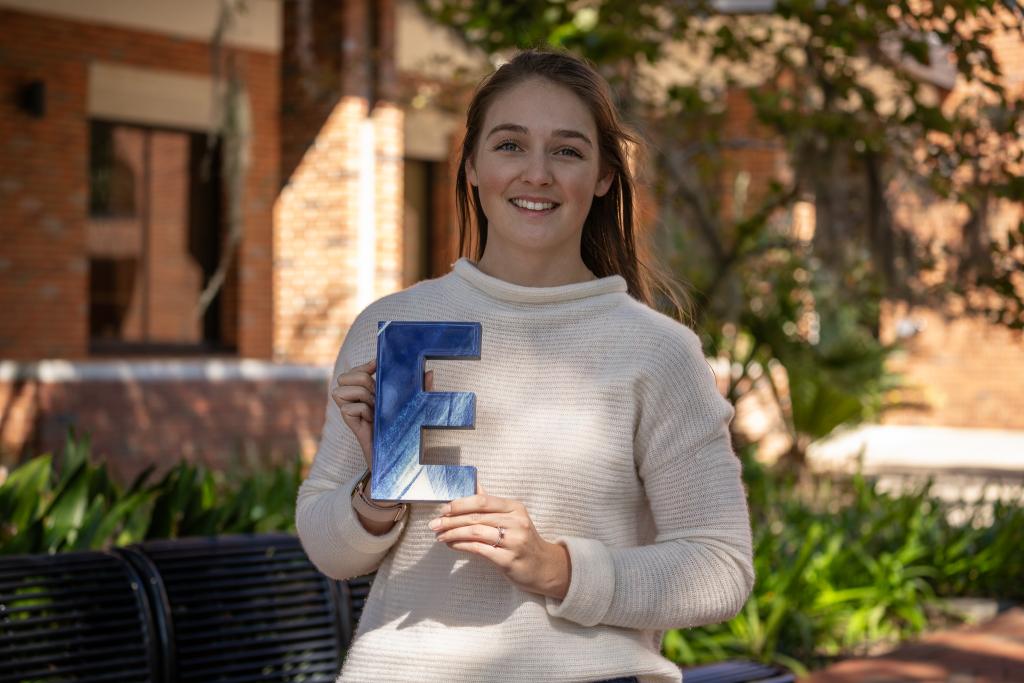
Sport Psychology Doctoral Student, Graduate Assistant Technology Sandbox
aef20y@fsu.edu
Where are you from?
Savannah, GA
When you were a child, what was your dream job?
Honestly a sport psychologist (lol).
What is your favorite quote?
"The future belongs to those who believe in the beauty of their dreams. - Eleanor Roosevelt
Which of the four LEGO letters is your favorite, and why?
My favorite is E because I think having people understand their own emotions and how others’ emotions impact them is so important.
What is your favorite way to spend free time?
Spending time with friends and watching some good reality TV.
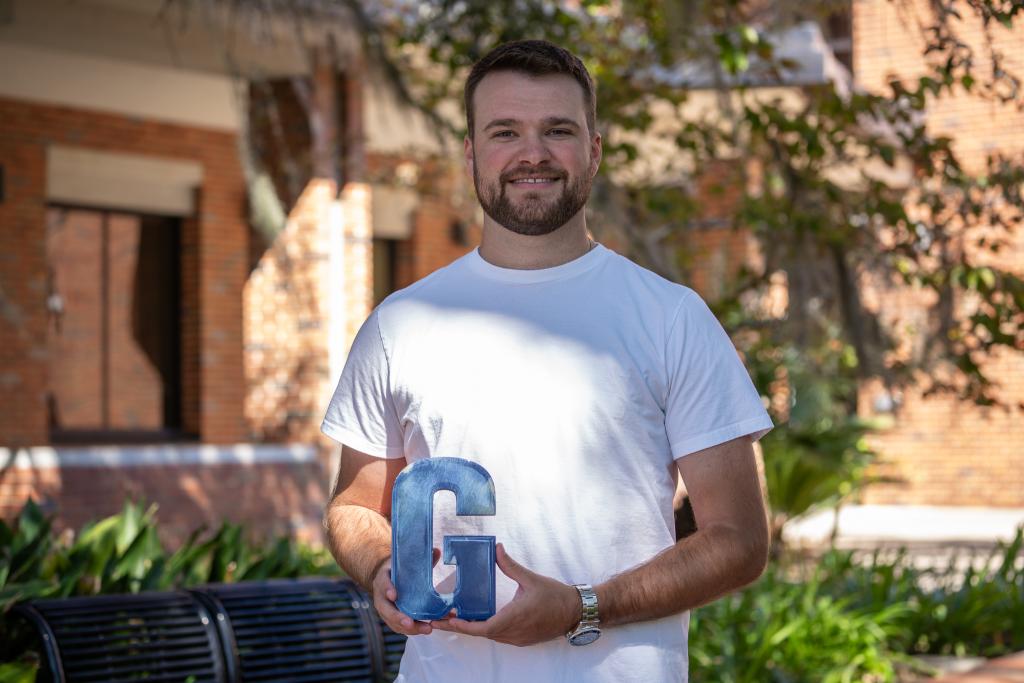
Sport Psychology Doctoral Student, Graduate Assistant
jh20hd@fsu.edu
Where are you from?
Westerville, Ohio
When you were a child, what was your dream job?
Professional Golfer
What is your favorite quote?"
“The best thing about tomorrow is, I will be better than I was today. That’s the beauty of tomorrow.” - Tiger Woods
Which of the four LEGO letters is your favorite, and why?
The G, because there’s something so unique about being a part of something bigger than yourself that changes the way people operate and collaborate. My research interests are all about the nature of groups.
What is your favorite way to spend free time?
I love golf and really appreciate any chance I get to spend time on the course.
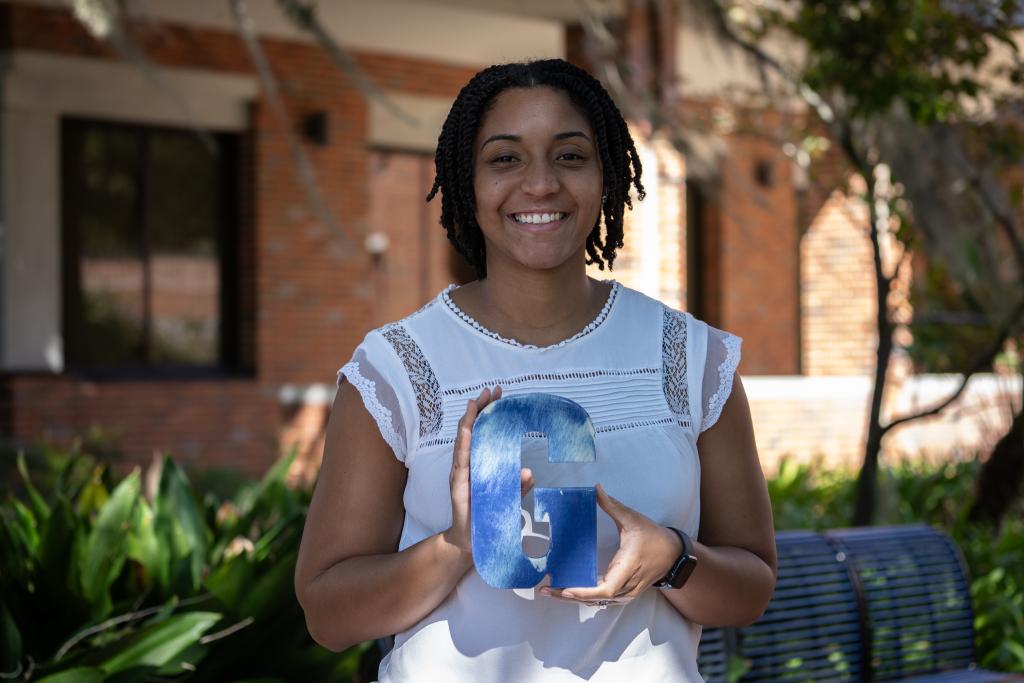
Sport Psychology Doctoral Student, Graduate Assistant
tlm22f@fsu.edu
Where are you from?
Portsmouth, Virginia
When you were a child, what was your dream job?
A teacher (mostly because my mom was one and I wanted to be like her!).
What is your favorite quote?
"There is nothing either good or bad but thinking makes it so.” - William Shakespeare
Which of the four LEGO letters is your favorite, and why?
My favorite LEGO letter is G because groups make it possible to collaborate and take our society places that we could never imagine alone. I also just enjoy being around other people!
What is your dream vacation destination?
Bora Bora

Sport Psychology Doctoral Student, Graduate Assistant
Where are you from?
Green Bay, WI
When you were a child, what was your dream job?
Pitcher for the Boston Red Sox
What is your favorite quote?
"There are two kinds of people: Those who think they can, and those who think they can't, and they're both right.” - Henry Ford
Which of the four LEGO letters is your favorite, and why?
G- The group has such a complex and interesting impact on performance.
What is your favorite way to spend free time?
Playing golf at Seminole Legacy Golf Club.
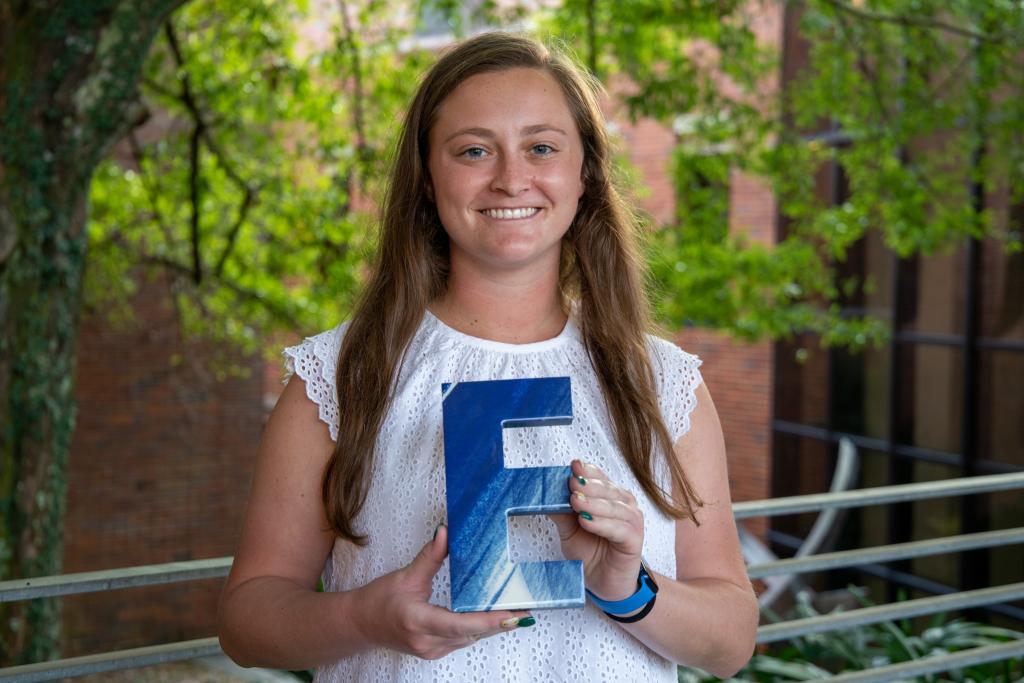
Sport Psychology Master's Student
tga18@my.fsu.edu
Where are you from?
Atlanta, Georgia
When you were a child, what was your dream job?
Olympic swimmer
What is your favorite quote?
"It’s the journey that teaches a lot about the destination.” - Drake
Which of the four LEGO letters is your favorite, and why?
My favorite letter of LEGO is E because mental health is an important topic, but is it extremely overlooked in athletes. Athletes need to be allowed to express their emotions without feeling belittled.
What is your dream vacation destination?
I was able to study abroad my whole freshman year in Valencia, Spain, so I crossed many dream vacation destinations off my list. However, one place I was not able to go to that I hope to visit is Norway.
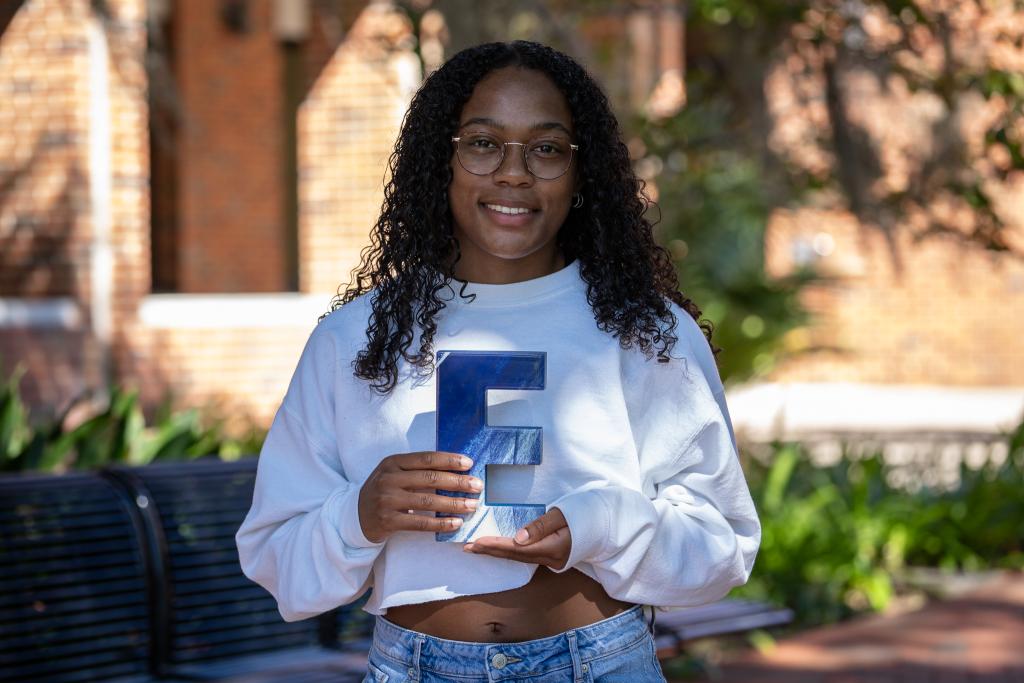

Sport Psychology Master's Student
Where are you from?
Germany (Dormagen, close to Cologne)
When you were a child, what was your dream job?
Decorating houses and owning a horse farm.
What is your favorite quote?
"Vulnerability is the birthplace of creativity, innovation, and change” - Brene Brown (Let's break the stigma together)
Which of the four LEGO letters is your favorite, and why?
The O, because everything is a circle (or at least interconnected) and it makes me think about perspectives. Also, it looks pretty.
What is the best piece of advice you have ever received?
Accept what you cannot change and focus on what you can change; start there.

Counseling Psychology and School Psychology Doctoral Student
jlk21b@fsu.edu
Where are you from?
Bethesda, Maryland
When you were a child, what was your dream job?
Dog whisperer/trombonist/percussionist/Boston Symphony Orchestra conductor/Broadway lighting designer/psychic detective.
What is your favorite quote?
“It’s better to light a candle than to curse the darkness.” - Chinese proverb
Which of the four LEGO letters is your favorite, and why?
I love them all equally.
What is your favorite way to spend free time?
Skiing, playing drums, and playing tennis.



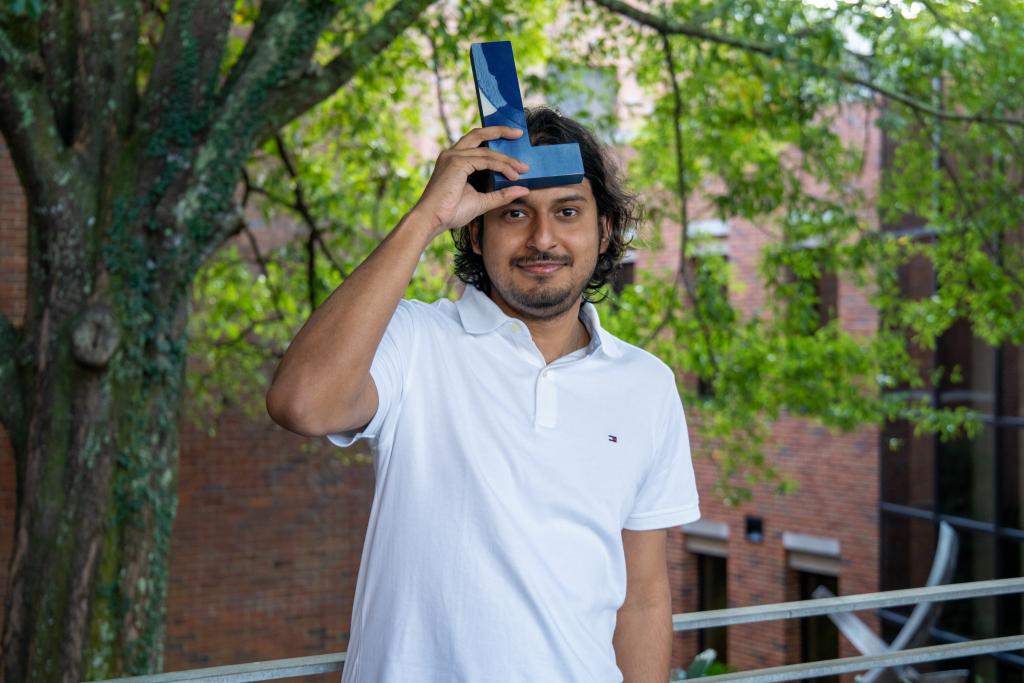
Sport Psychology Master’s Student
am22cj@fsu.edu

Undergraduate Student
lcs23b@fsu.edu
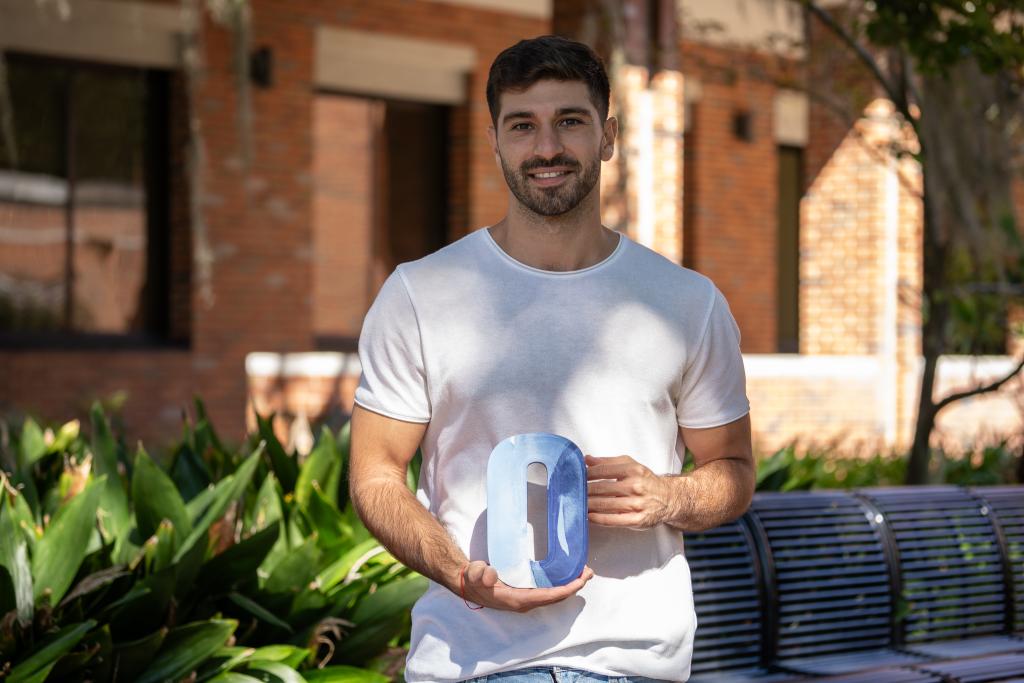
Sport Psychology Master’s Student
ys22e@fsu.edu
Where are you from?
Yuvalim, Israel
When you were a child, what was your dream job?
Professional Soccer Player
What is your favorite quote?
“When you forgive, you love. And when you love, God’s light shines upon you” - Into the Wild
Which of the four LEGO letters is your favorite, and why?
“G” because I see the magic that is created when people are merging in a group. Whether it’s family, friend groups, sport teams, or teams at the workplace, the power generated by the connection of people is special to me.
What is your favorite way to spend free time?
I love spending time with my friends and playing soccer, when the two happen to co-occur, it is absolutely the best time.
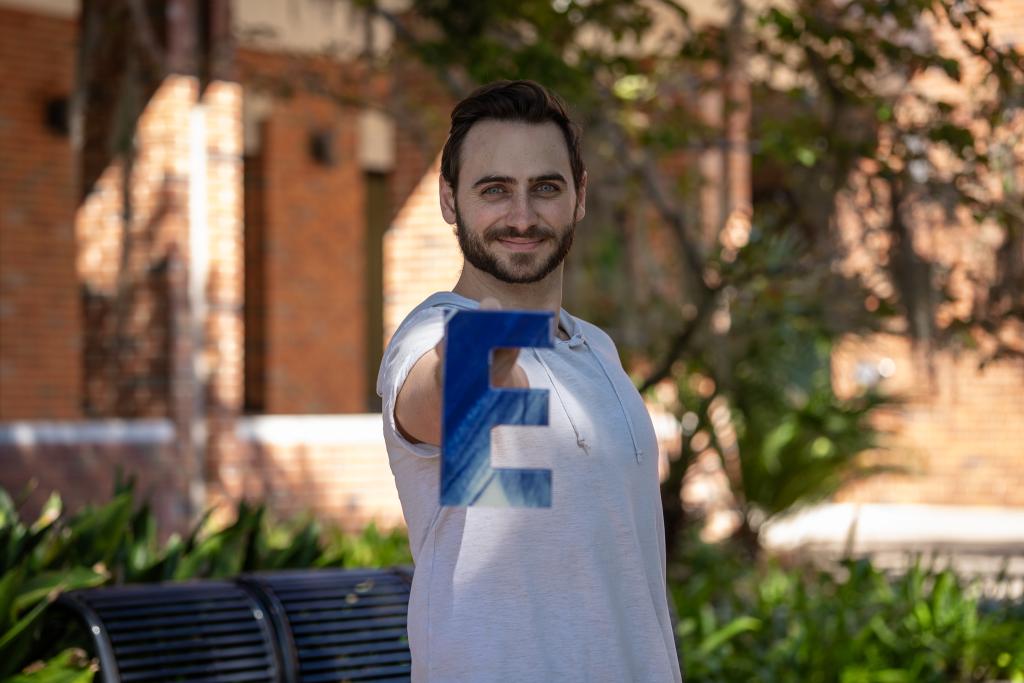
Sport Psychology Master’s Student
bms23@fsu.edu
Sport Psychology Master’s Student
Where are you from?
Raleigh, NC
When you were a child, what was your dream job?
Dolphin Trainer
What is your favorite quote?
“Success is not final; failure is not fatal: it is the courage to continue that counts” - Winston S. Churchill
Which of the four LEGO letters is your favorite, and why?
“E” for emotions, because even though we all come from different backgrounds, emotions are universal. Since we all share emotions, they help us relate to others and build relationships.
What is your dream vacation destination?
Lake Como, Italy
Dr. Carly Block, Boston University
Dr. David Eccles, Florida State University
Dr. M. Blair Evans, Western University
Dr. Katharina Geukes, University of Münster
Fee Gierens, University of Tübingen
Dr. Hans-Dieter Herrmann, University of Tübingen
Dr. Marc W. Heerdink, University of Amsterdam
Dr. Chris Hill, California State University San Bernadino
Dr. Oliver Höner, University of Tübingen
Dr. Jens Lange, University of Hamburg
Dr. Franziska Lautenbach, Humboldt University of Berlin
Dr. Sascha Leisterer, University of Leipzig
Dr. Desi McEwan, University of British Columbia
Benedikt Perl, Technical University Munich
Hannah Pauly, University of Münster
Elke Reisch, University of Amsterdam
Andrea Schittenhelm, University of the German Armed Forces Munich
Dr. Katherine Tamminen, University of Toronto
Dr. Gerben A. van Kleef, University of Amsterdam
Dr. Svenja Wachsmuth, University of Tübingen
Dr. V. Vanessa Wergin, The University of Queensland
You can reach the entire LEGO Team at COE-EPLS-LEGO@fsu.edu.
If you are interested in a particular project, please contact the respective LEGO lead person [please link to The People section]. If you are interested in teaming up with the LEGO for research or knowledge translation, you can also contact Svenja directly under swolf2@fsu.edu.
If you would like to know more about FSU’s Sport Psychology programs, please have a look at the program page.